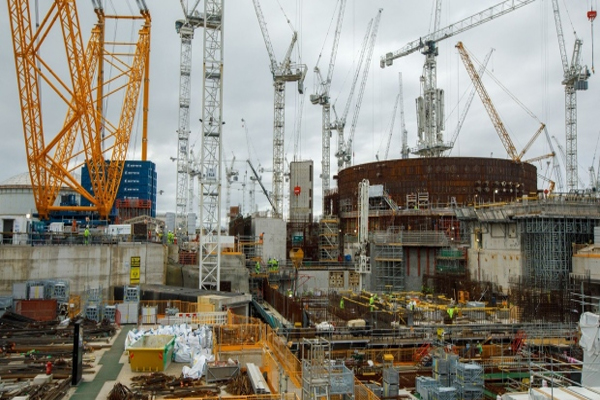
Rodney Jefferson and Ellen Milligan, Bloomberg news
LONDON
EnergiesNet.com 04 04 2022
The U.K. will detail plans to broaden its energy sources this week as the war in Ukraine, sanctions on Russia and a cost-of-living crisis forces countries across Europe to urgently revamp how they generate electricity and heat homes.
The main focus will be on nuclear and wind power, two industries that haven’t been short of controversy. Government minister Grant Shapps said on Sunday he expects to see proposals for more nuclear reactors, including smaller capacity ones, and for scaling up off-shore wind farms. He doesn’t advocate putting up more turbines onshore, though.
“I don’t favor a vast increase in onshore wind farms — they can create something of an eyesore for communities as well as noise problems,” Shapps, the U.K.’s transport secretary, told Sky News. “For reasons of environmental protections, the way to go with this is largely on-sea.”
The war in Ukraine has put the spotlight on energy imports, and the European Union is redoubling efforts to reduce dependency on Russia, particularly for gas. But prices were already soaring before Russian President Vladimir Putin’s invasion, and officials in some countries have warned that controls may be put on gas usage and diesel consumption.
Speaking later on the BBC, Shapps ruled out rationing in the U.K. because the country relies far less on Russian imports than other large European economies such as Germany. He said Britain, though, was still exposed to surging costs because of the international market.
A U.K. government cap on gas and electricity prices jumped on April 1, and charity groups warned that millions of people will be pushed into energy poverty — that is, having to choose between paying heating bills or buying food.
The immediate challenge is to spread the mix of production. Business Secretary Kwasi Kwarteng is due to announce details of the new energy security plan within days. As well as wind and nuclear, there will also be an effort to increase solar electricity generation.
Britain could construct as many as seven new nuclear power stations by 2050 as part of the expansion, Kwarteng told the Telegraph. Ministers have agreed to set up a development vehicle to identify sites and speed up the planning process, the newspaper reported. The government is also in talks over a fleet of hundreds of mini-reactors, the paper said.
When it comes to wind, Prime Minister Boris Johnson has his sights set on a giant farm of turbines in the Irish Sea to be built within 12 months, the Telegraph reported separately.
bloomberg.com 002 02 2022












